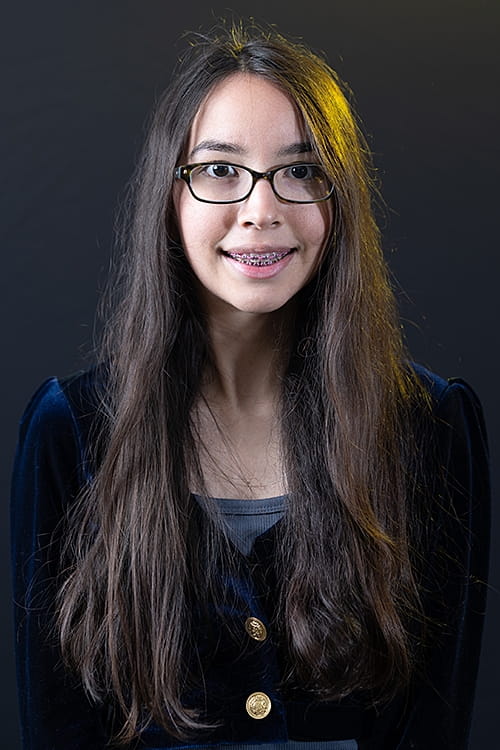
Delia Mozqueda, Undergraduate student, neuroscience
Tests cognition in cancer patients
“In my career I have mentored more than 20 undergraduate students in research, and Delia falls in the top 2% in attitude, conscientiousness in work ethic, team engagement, and attention to detail (this last a rare quality in young students). Delia is exceptionally hardworking and intellectually independent with a strong capacity for analytical thinking.” – Kanchna Ramchandran
Hometown: Murray, Iowa
Faculty mentor/advisor: Kanchna Ramchandran, PhD
What is your degree program and expected graduate date? Neuroscience, BS, May 2023
Please describe your research: I have trained extensively in neuropsychological testing administration, which involves assessments that evaluate aspects of cognition. I have also received certification for using transcranial magnetic stimulation (TMS) technology, which is a non-invasive brain stimulation method. We are looking to see if TMS can be used as a potential intervention for reducing cognitive deficits in patients with cancer (a pilot study).
In simple terms, why does this research matter? This research is important because it could open doors to large-scale studies that investigate clinical applications of TMS for patients with cancer. This would be of great benefit for individuals who have struggled with chemotherapy-induced cognitive deficits. The goal is to take small steps towards improving the quality of life of patients who have undergone chemotherapy.
How soon after starting at the University of Iowa were you able to participate in research? After taking some of my core neuroscience classes, I was able to solidify my interests in neuroscience research. I began working as a research assistant the summer after my sophomore year.
How has being involved in research made you more successful at the University of Iowa? Through research, I was able to recognize the value of my individual contributions. This helped me learn how to take initiative and be more outspoken about my ideas. Research has also taught me that making mistakes is normal and that there is no need to set unnecessary expectations for myself.
What are your career goals and/or plans after graduation? I plan to take a gap year and then apply for a PhD or MD/PhD program. My areas of interest are psychiatry and neurology in pediatric health. I am hoping to narrow down my interests as I shadow faculty in these areas and rotate in other research labs.
Banner location: not on display—
